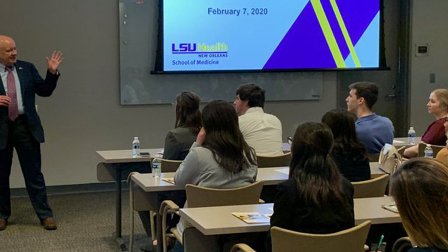
Urban Planning
The planning of urban and suburban areas involving the development of buildings, gardens, roads, etc., and using the land, and available resources while maintaining a safe environment is known as Urban Planning. Urban planning is a multidisciplinary field that focuses on the design, development, and organization of urban areas or cities to create functional, sustainable, and livable environments for residents. Urban planners work on a wide range of projects and initiatives to address the complex challenges of urbanization. It helps in settling the communities and it involves a lot of analysis, strategies, research, designing, architecture skills, etc. Also, the knowledge related to legal formalities in terms of urban planning is needed to excel in this profession. This field is growing at a fast pace as there is a continuous growth in urbanization and the need for well-maintained cities is increasing.
Urban planning is a dynamic field that responds to evolving urban challenges and opportunities. Planners work in various settings, including government agencies, private firms, non-profit organizations, and academia. Their work is essential for creating cities and communities that are inclusive, resilient, and capable of supporting the well-being of their residents.
Role Desciption
Here are key aspects and principles of urban planning:
Land Use Planning: Urban planners allocate land for various purposes, such as residential, commercial, industrial, recreational, and green spaces. This involves zoning regulations, land use policies, and urban development plans.
Transportation Planning: Planning for efficient and sustainable transportation systems is critical. Planners design road networks, public transit systems, bicycle lanes, and pedestrian-friendly infrastructure to reduce congestion and improve mobility.
Environmental Sustainability: Urban planners incorporate environmental considerations into their designs, promoting sustainability through green building practices, energy-efficient technologies, waste management, and green spaces. They aim to reduce the ecological footprint of cities.
Housing and Affordable Housing: Urban planners address housing needs by planning for affordable housing developments, mixed-income neighborhoods, and strategies to combat homelessness. They also focus on improving housing quality and accessibility.
Infrastructure Planning: This involves planning for essential infrastructure like water supply, sewage systems, electricity, and telecommunications to meet the needs of a growing urban population.
Urban Design: Urban planners work on urban design principles to create visually appealing and functional urban spaces. This includes the layout of streets, parks, plazas, and architectural design guidelines.
Economic Development: Planners aim to foster economic growth by attracting businesses, supporting job creation, and revitalizing urban areas. They often collaborate with economic development agencies and local businesses.
Community Engagement: Engaging with the community is a key aspect of urban planning. Planners seek input from residents, businesses, and stakeholders to ensure that plans reflect the needs and desires of the local population.
Historic Preservation: Preserving historical and cultural landmarks is an important part of urban planning. Planners work to protect and restore heritage sites while accommodating modern development.
Public Health: Urban planners consider public health factors, such as access to healthcare facilities, healthy food options, and green spaces, to create environments that promote well-being.
Resilience and Disaster Preparedness: Preparing for and mitigating the impact of natural disasters and climate change is a growing concern. Planners work on strategies to enhance urban resilience and reduce vulnerability.
Policy Development: Urban planners often contribute to the development of urban policies, regulations, and master plans that guide future development. They may also advocate for policy changes to address emerging urban challenges.
Data Analysis and Technology: Advanced data analysis and technology, including geographic information systems (GIS), play a crucial role in urban planning. Planners use data to inform decisions, track trends, and model urban scenarios.
Transportation Alternatives: Promoting alternative transportation modes such as public transit, cycling, and walking is a key strategy to reduce traffic congestion and air pollution.
Eligibility
| Route 1 | 10+2 in any stream with Math and English |
| B. Plan for 4 years | |
| M. Plan (various specializations available) | |
| PhD in Urban Planning | |
| Route 2 | 10+2 in any stream with PCM |
| B.Arch for 5 years/ B.Tech in Planning/ Civil Engineering/Environment engineering | |
| M. Plan (various specializations available) | |
| Route 3 | 10+2 in any stream |
| MA in Geography/ MA Sociology/ MA Economics/ Master in Statistics | |
| M. Plan ( certain selected specialisations available) |
Significant Statistics
- Minimum 50% is required in 10+2 including in Mathematics and English for admission to colleges
Pros/Cons
Pros
- Amazing opportunity to provide beautiful and comfortable dwelling with appealing exterior design
- Great opportunities for creative and innovative individuals
Cons
- Planning according to the customers' needs can sometimes be stressful
- Strict deadlines and long working hours
- Involves a lot of field visits which can be time-consuming
Leading Professions
View All
Government Jobs
Various government agenc...
12.0LPA

Academics
Professionals with advan...
12.0LPA

Research in Urban Planning
Urban Planners working i...
8.0LPA

Urban Planner
Urban planners work on t...
10.0LPA

Town Planner
Town planners focus on t...
8.0LPA

Architect
Architects play a vital ...
5.0LPA

Transportation Planner
Transportation planners ...
8.0LPA

Environmental Planner
Environmental planners w...
5.0LPA
CAREER VIDEOS
Career Path
Urban Planning
4 Steps
Skills
Recruitment Area
Government departments ,
Research ,
Private organizations ,
Educational Institutes ,
Real Estate Companies ,
Self-employment .
Recruiters
DLF Group ,
JLPL ,
Sushma Group ,
Omaxe ,
Godrej Properties ,
Prestige Group .
Explore Colleges
Exams & Tests
Interested? Take the next step for this career
Urban Planning
- 4 Steps
Skills Needed
Exams and Tests
Recruitment Area
Government departments ,
Research ,
Private organizations ,
Educational Institutes ,
Real Estate Companies ,
Self-employment .
Recruiters
DLF Group ,
JLPL ,
Sushma Group ,
Omaxe ,
Godrej Properties ,
Prestige Group .



















